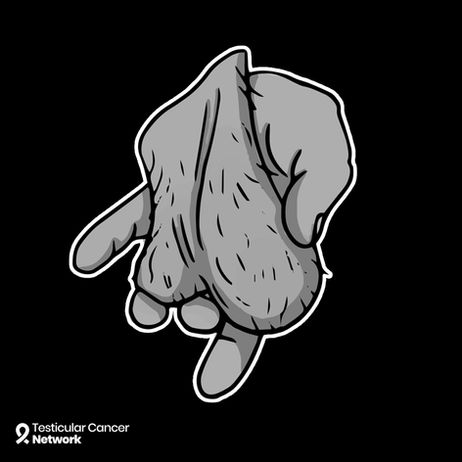
If you have any of the symptoms of testicular cancer, or have discovered anything not normal for you – then you must visit a medical professional.
Testicular Cancer Facts
-
2,400 men are diagnosed with testicular cancer every year in the UK (that's over 6 a day)
-
Testicular cancer is the most common cancer in men aged 15-45 (but it can occur at any age)
-
Testicular cancer is on the rise - incidence rates have increased by more than a quarter since 1990
-
Testicular cancer is 95% curable if detected early
-
It only takes 2 minutes a month to check your testicles for the signs & symptoms of testicular cancer - and it could save your life
Testicular Cancer Risk Factors
-
Family history – if your brother or father had testicular cancer you are 4-8 times more likely to develop it
-
Undescended testicles (cryptorchidism) – the risk is greater in men where the condition isn’t corrected, or who haven’t had the surgery by age 11-13
-
Previous testicular cancer – if you have previously been diagnosed with testicular cancer you are 12-18 times more likely to develop cancer in the remaining testicle (it’s important to attend follow-up appointments)
Testicular Cancer Signs & Symptoms
-
You should see your doctor if you notice a change that isn't normal for you or if you have any of the possible signs and symptoms of cancer.
Even if you're worried about what the symptom might be, don't delay seeing them. Your worry is unlikely to go away if you don't make an appointment. The symptom might not be due to cancer. But if it is, the earlier it's picked up the higher the chance of successful treatment. You won't be wasting your doctor's time.
Try not to be embarrassed. What you tell your GP is confidential. Doctors are used to discussing intimate problems and will try to put you at ease.
How to Perform a Testicular Self-Exam
-
The best time to check your testicles is during, or just after, a hot bath or shower. This is when the scrotum is relaxed, making it much easier to check!








